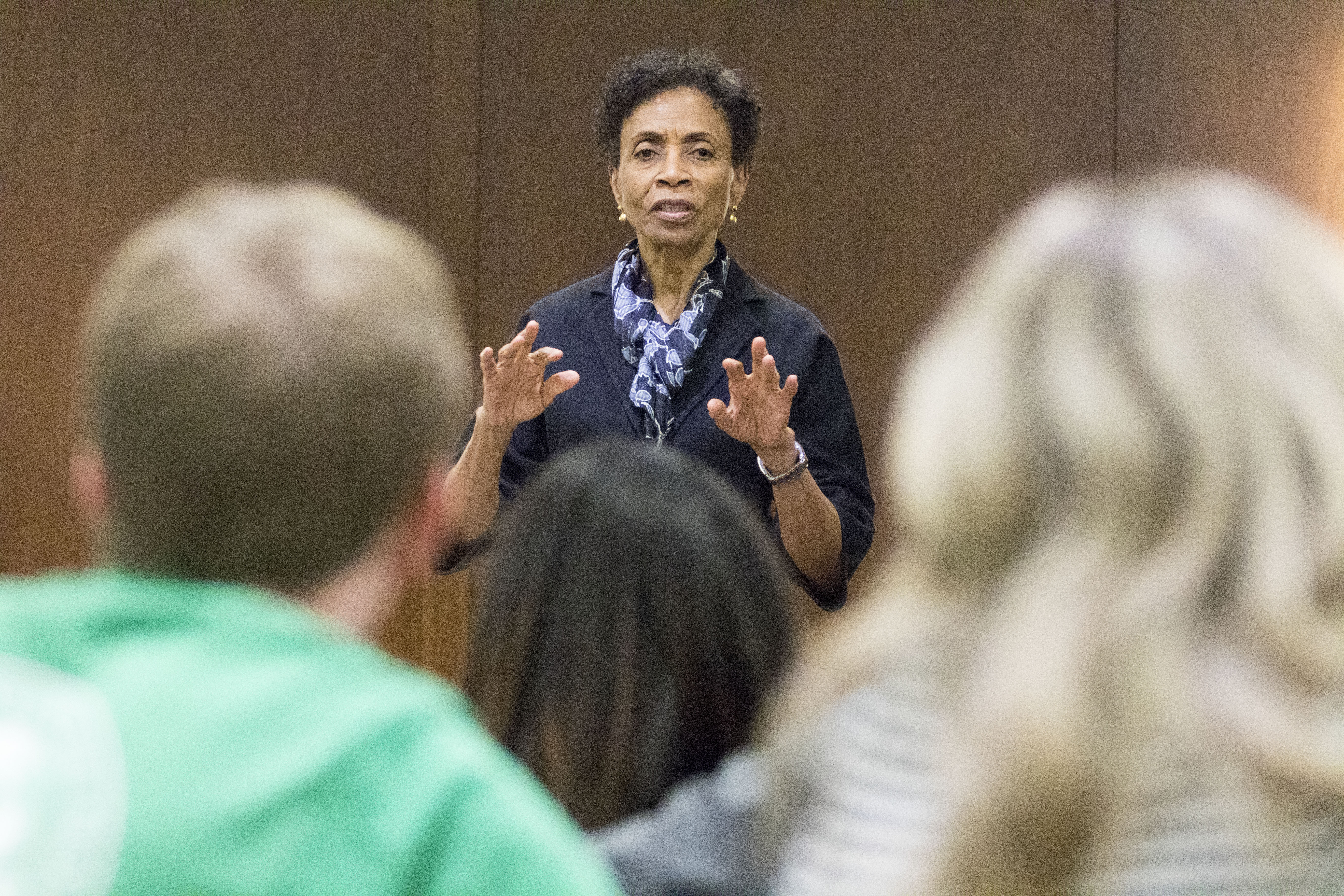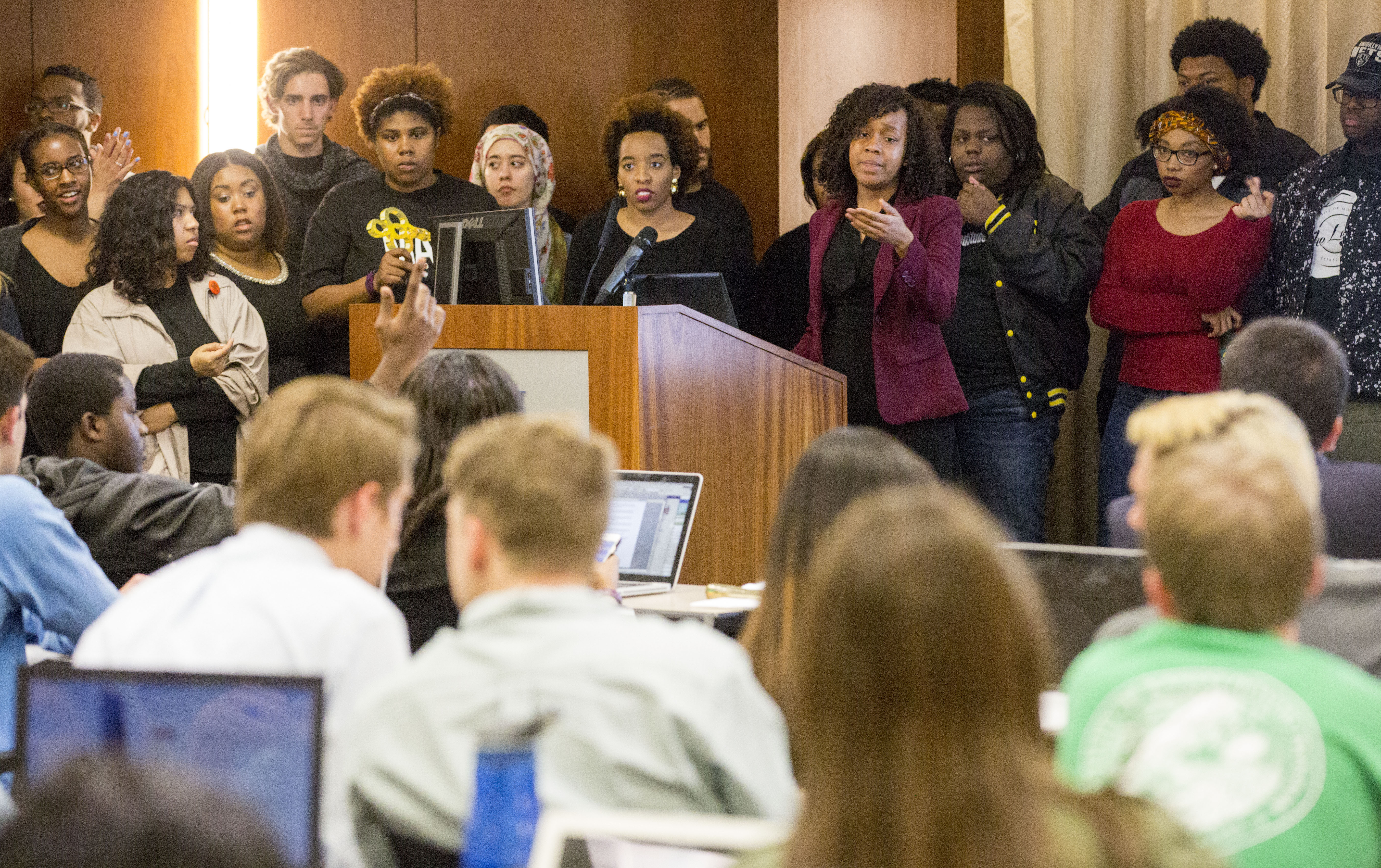KU chancellor vetoes student fee funding Multicultural Student Government

photo by: John Young
Kansas University Chancellor Bernadette Gray-Little speaks to the Kansas University Student Senate at the start of the Senate's March 9, 2016, meeting at the Kansas Union. Gray-Little was the invited guest speaker and gave a general update on university issues.
Kansas University Chancellor Bernadette Gray-Little has vetoed a $2 student fee funding a separate Multicultural Student Government, leaving the future of such an organization in doubt. The Student Senate had voted March 9 in favor of the fee.
In a letter sent to the Student Senate on Wednesday, Gray-Little said she could not recommend the fee to the Kansas Board of Regents because “the separate multicultural government for which the fee was created does not exist, nor will the separate government be developed for 2016-2017, the year for which the fee is intended.”

photo by: John Young
Jameelah Jones, center, and Katherine Rainey, right, speak to the Kansas University Student Senate about a proposed Multicultural Student Government fee during the Student Senate meeting Wednesday evening March 9, 2016, at the Kansas Union.
Gray-Little argued that KU university code prohibits “multiple independent groups representing a constituent group … within University Senate.”
“Finally, I believe that the independent student government proposed … is not an optimal way to achieve the goals we have for diversity and inclusion at the university and, indeed, may lead to greater divisiveness,” she wrote.
Trinity Carpenter, a KU student and interim MSG secretary, told the Journal-World that group president Katherine Rainey and two other members of MSG leadership received email copies of the letter shortly after 5 p.m. Wednesday, hours before a planned forum to introduce the group to the broader university and help define its goals.
At that meeting, Carpenter said, the group announced that MSG would press on with its mission to secure funding for a body that could stand “shoulder to shoulder” with the Student Senate. She noted Gray-Little’s letter cited the opinion of University Senate president Michael Williams as part of the reason for her veto. According to Carpenter, Williams recently told MSG leadership a proposal to change language in the university code — to reflect bicameral governance — could resolve some of the objections raised in the letter.
“That is what we wanted all along — to be an equal body with the Student Senate,” Carpenter said. “This hurts, because we are the marginalized students who know there is a need for this resource. It’s even harder to accept because they have admitted there is a need for this institution and are not supporting it.”
MSG submitted an application to become a registered KU organization on March 2 and was approved the same day. Also March 2, the Student Senate finance committee heard a request for funding from MSG and amended its original 2016-17 fee package recommendation to include a $2 required student fee for MSG.
On March 9, the full Student Senate approved that recommendation, funding the new MSG with the $2 required student fee expected to bring in about $90,000 annually. The MSG fee is one of several allocated to KU’s Office of Multicultural Affairs.
MSG leaders told the Student Senate that roughly half the $90,000 would go toward stipends for its executive staff — $6,000 per person — and the other half toward programming, supplies and advertising.
On March 30, the Student Senate voted to give MSG complete control of allocating the Multicultural Education Fund, which currently has about $90,000 in it. Under Student Senate control that fund was described as designated for multicultural student organizations’ programming and events.
While the actions spurred emotional debates at Student Senate meetings, they were approved by overwhelming numbers of student representatives.
This story has been edited to correct an inaccurate description of University Senate president Michael Williams’ comments to Multicultural Student Government leadership, according to interim secretary Trinity Carpenter.







